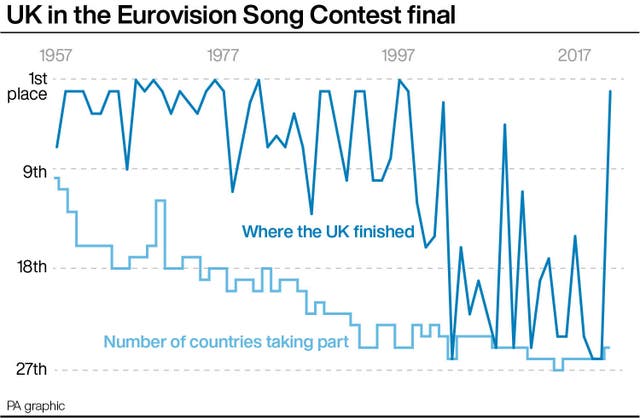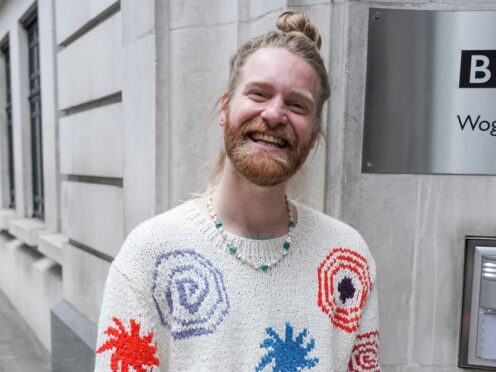The Eurovision Song Contest final was streamed 2.22 million times on BBC iPlayer over the weekend, the broadcaster said.
It was a joyous night on Saturday for UK hopeful Sam Ryder, who finished second behind Ukraine’s folk-rap group Kalush Orchestra, who won with their song Stefania.
On the night, an average of 8.9 million people tuned in to watch the competition on BBC One, with a peak viewing figure of 10.6 million, the corporation said.
✨ 2 is a magic number 👨🚀 @bbceurovision fans streamed the 2022 Eurovision Song Contest Final over 2.22 million times on @bbciplayer on Saturday and Sunday, up 73% on 2021 🚀 pic.twitter.com/GqRxaKPzc9
— BBC Press Office (@bbcpress) May 17, 2022
The broadcaster said the 2.22 million streams on Saturday and Sunday was an increase of 73% compared to 2021’s final, which saw UK representative James Newman score zero points and come bottom of the leaderboard.
The broadcaster also highlighted the importance of the number two for Ryder.
It said the 32-year-old TikTok star’s uplifting pop song Space Man was released on February 22 2022 and that he performed in the second half of the show in the 22nd position on the night.

Ryder won over the audience with his track and topped the national jury vote with 283 points, beating favourites Spain and Sweden.
His podium position marked the first time in 20 years the UK has placed in the top three.
Ryder continues to ride the wave of support as his song Space Man is climbing up the UK singles chart to sit in second place behind Harry Styles hit As It Was.
If he secures the top spot on Friday, it will be the first Eurovision song to hit number one in 26 years since Gina G’s track Ooh Aah… Just A Little Bit in 1996, according to the Official Charts Company.
Ukraine’s Kalush Orchestra went on to win the 2022 song contest after a symbolic show of public support which saw them soar to first place with 631 points.
During their performance, which combined rap and Ukrainian folklore, the group were dressed in elaborate outfits, including long multi-coloured fringed ensembles.
The act had been the frontrunners since Russia’s invasion – which prompted organisers to ban the country from competing.
Ukraine joined the contest in 2003 and its three wins make it one of the most successful of the newer competitor countries – having triumphed in 2004 and 2016.
